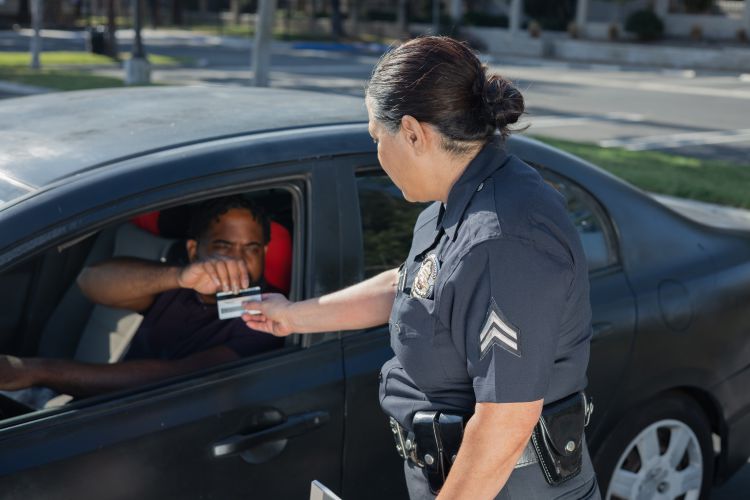 Speeding is often thought of as a minor crime, but it can have major consequences. When you drive above the posted speed limit or too fast for the conditions, you are speeding. It is a crime in every state and can result in a fine, points on your license, or even jail time.
Speeding is often thought of as a minor crime, but it can have major consequences. When you drive above the posted speed limit or too fast for the conditions, you are speeding. It is a crime in every state and can result in a fine, points on your license, or even jail time.
Speeding is especially dangerous because it increases the amount of time it takes to stop a car and makes it more difficult to avoid obstacles on the road. In addition, speeding makes it more likely that you will be involved in a serious accident. If you are caught speeding, be prepared to face the consequences.
What should you do when you’re charged with the crime of speeding?
If you have been charged with speeding, there are a few important things to keep in mind. First and foremost, do not panic. Speeding is a relatively minor offence and is often handled through a simple traffic ticket. However, there are still some steps you need to take to ensure that the matter is resolved properly.
1. Get in touch with a lawyer.
If you have never been charged with a crime before, it is important to get in touch with an experienced lawyer who can help you navigate the legal system. A speeding offence lawyer will also be able to tell you what kind of defences may be available to you and can help you create a strong defence strategy.
2. Gather evidence.
If you have been charged with speeding, it is important to gather any evidence that you can to support your defence. This may include eyewitness testimony, photographs, or video footage.
3. Collect character witnesses.
In some cases, character witnesses can be extremely helpful in showing that you are not the type of person who typically speeds. These witnesses can attest to your good driving record or can provide other evidence that you are a responsible driver.
4. Prepare your defence.
Once you have gathered all of the evidence and information you need, it is important to start preparing your defence. Your lawyer will be able to help you put together a strong defence strategy and can represent you in court.
5. Go to court.
If you have been charged with speeding, you will need to appear in court. This is where your defence will be presented and you will have the opportunity to argue your case. If you are found guilty of speeding, you may be required to pay a fine or may even face jail time. However, if you have a strong defence, you may be able to avoid these penalties.
If you have been charged with speeding, it is important to take the time to understand the charges against you and to prepare a strong defence. By taking these steps, you can help ensure that you obtain the best possible outcome in your case.
What is the governing traffic law for speeding in Queensland?
The governing traffic law for speeding in Queensland is the Transport Operations (Road Use Management) Act 1995. This act sets the maximum speed limit for all vehicles on all roads in Queensland unless otherwise signed.
The maximum speed limit on urban roads is 60km/h, while the limit on highways and freeways is 100km/h. Drivers who exceed the posted speed limit by more than 40km/h can be fined $1,325 and lose their licence for six months.
What are the penalties for speeding in Queensland?
The penalties for speeding in Queensland vary depending on the severity of the offence and whether it is a first or subsequent offence. The following table outlines the maximum fines and licence disqualification periods that can be imposed for speeding offences in Queensland.
Offence type Maximum fine Licence disqualification period First offence – Exceeding the speed limit by 1-9 km/h $133 3 months First offence – Exceeding the speed limit by 10-19 km/h $266 6 months First offence – Exceeding the speed limit by 20-29 km/h $399 9 months First offence – Exceeding the speed limit by 30 km/h or more $1,299 12 months Subsequent offence – Exceeding the speed limit by 1-9 km/h $266 6 months Subsequent offence – Exceeding the speed limit by 10-19 km/h $399 9 months Subsequent offence – Exceeding the speed limit by 20-29 km/h $733 18 months Subsequent offence – Exceeding the speed limit by 30 km/h or more $2,099 3 years
In addition to the fines and licence disqualification periods that can be imposed for speeding offences, drivers can also incur demerit points on their licence. The number of demerit points that a driver receives for a speeding offence depends on the severity of the offence. For example, a driver exceeding the speed limit by 1-9 km/h will incur 1 demerit point, while a driver exceeding the speed limit by 30 km/h or more will incur 8 demerit points.
If a driver accrues too many demerit points, they may have their licence suspended or cancelled. For more information about demerit points and licence suspensions, please see the Queensland Government website.
Speeding is a serious offence and can have serious consequences. If you are convicted of speeding, you may face significant fines, licence disqualification periods and demerit points. You may also increase your risk of being involved in a collision.
If you are caught speeding, you should seek legal advice as soon as possible. A lawyer can help you understand the charges against you and the potential penalties that you may be facing. They can also assist you in developing a defence to the charges and represent you in court.
Disclaimer: This information is general in nature and should not be taken as legal advice. For specific legal advice, please contact a lawyer.




